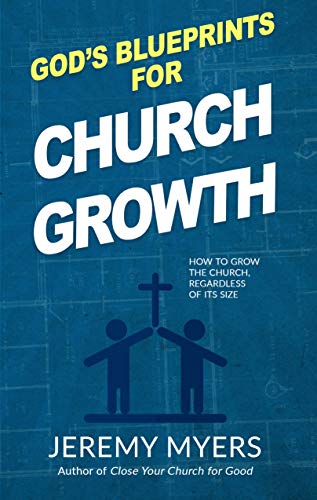 After President Calvin Coolidge returned home from attending church early one Sunday afternoon, his wife had been unable to attend, but she was interested in what the pastor spoke on in the service, so she asked her husband what the sermon was about.
After President Calvin Coolidge returned home from attending church early one Sunday afternoon, his wife had been unable to attend, but she was interested in what the pastor spoke on in the service, so she asked her husband what the sermon was about.
“Sin,” he responded. She pressed him for a few words of explanation, and, being a man of few words, he elaborated by saying, “I think he was against it.”[1]
This is funny because it seems that so many sermons are nothing more than tirades against sin.
And maybe it’s true that the church often has a preoccupation with sin, so much so, that we sometimes forget to focus on all the positive, uplifting, and encouraging truths of Scripture. But at the same time, the Bible does frequently warn us against the dangers of sin.
As we’ve been working our way through Paul’s letter to the Ephesians, we are in a section where he is encouraging his readers to walk in Purity (Ephesians 4:17-32).
The first half of this section revealed the truth that the real problem with the world is not the sinners “out there,” but the one in here. Me. Or in your case, you. If we want the world to change, I must begin by changing me, and you begin by changing you. And we do this by letting Jesus, through the Holy Spirit, point out to us in your lives what needs to be changed. Jesus comes in and says, “Get rid of this, and this instead.” Jesus will help us, as Paul states in Ephesians 4:20-24, put off the old and put on the new.
Now, in Ephesians 4:25-32, Paul provides five examples of the types of things Jesus will change in our lives. In each case, Paul repeats the “put off … put on” terminology. In each of these five examples, Paul provides a negative command of something to stop, and then also a positive command of something to start.
Again, as stated previously, this is the only way to make changes in your life. If you want to get rid of bad habits, you have to replace them with something new. And that is what Paul describes in Ephesians 4:25-32.
Now, I’ll be honest, most of the items in this list are fairly standard. If you go look moral instructions from any world religion, or even from any non-religious person, the moral instruction that Paul provides in Ephesians 4:25-32 will be found in nearly all of them. Pretty much everyone has the same morals, whether they are Christian or not.
Lots of Christians seem to think that Christians have a monopoly on morality. But we don’t. The instructions Paul provides in Ephesians 4:25-32 are quite ordinary. Nearly everyone has almost identical moral beliefs.
So why does Paul even bother? Or, maybe a better question is, why doesn’t Paul raise the level of Christian morality to something better or superior to that which is found among almost everyone else?
He definitely could have done this, if he wanted. After all, Jesus did. In the Sermon on the Mount, in Matthew 5-7, Jesus raises the standards of morality to an almost impossible degree. Almost no moral teachers of other religious try to teach what Jesus teaches in that Sermon.
Why didn’t Paul do the same? Why are his moral exhortations here so mundane?
I think the reason is quite simple.
While it is true that Jesus calls us to a superior morality, to a level of morality that is nearly impossible to maintain, we certainly don’t start there in the task of cleaning up our lives. We start where everyone starts: with the basics. Ephesians 4:25-32 covers the basics of morality.
And the sad reality is that while Christians are definitely supposed to live morally superior lives to everyone else, the truth is that many Christians are morally inferior.
Since many Christians know that eternal life is not based on works, but solely on faith in Jesus, and because many Christians understand the biblical teaching on God’s love, grace, mercy, and forgiveness, and because many Christians feel somewhat intellectually superior to others because “We have the truth,” such beliefs often cause Christians to live in less moral ways than non-Christians.
Yes, I am making broad, sweeping generalizations, but if you completely disagree, and think that in general Christians behave better than non-Christians, I would say that you don’t know many non-Christians in a very personal way. I spent the first twenty five years of my life among mostly Christians, and the next twenty-five years among mostly non-Christians, and I can say that, in general, non-Christians behave just as well, if not better, than Christians.
And so this is why Paul begins with the basics in Ephesians 4:25-32. Yes, we are supposed to live better lives than non-Christians, but we certainly shouldn’t be living worse lives! And so he begins with the basics to make sure that we have these nailed down before he moves on to something more advanced. … Which he does in Ephesians 5.
This also, by the way, is how Jesus Christ works in your life when you first become a Christian. When Jesus enters the house of your life and begins to look for rooms to clean up and closets to clear out, Jesus always starts with the basics. If you have piles of rotting garbage in your living room, Jesus will help you clear out that stinking garbage before He asks you to remove dust from the bookshelves.
And the truth of the matter is that attending church, reading your Bible, and praying does not make you a better person than everyone else. These are good practices, but they don’t automatically help us develop morality. For that, we need to follow Jesus on the path of discipleship, and Jesus always start us out where everyone starts out: at the very beginning.
Jesus always works on the biggest problems first, and the basic problems. Only once we have mastered those does He move on to other matters.
And that is exactly what Paul is doing here in Ephesians 4:25-32.
Now, the first sin Paul deals with, which also happens to often be the first Jesus works on with us, is the sin of lying. Paul discusses this in Ephesians 4:25.

Paul puts this sin first, because as we have seen time and time again in Paul’s letter to the Ephesians, telling the truth, speaking the truth, and focusing on the truth is of primary importance.
In fact, in the previous three verses where Paul talks about putting off the old self and putting on the new, Paul emphasizes the importance of truth. Therefore, it is fitting that Paul begins the specific exhortations with an instruction against lying. It could be said that lying and deceitfulness are at the root of all other sins, for we only commit sin because we are lying to ourselves about what God says or what we know the Bible teaches.
All sin begins with self-deception. Therefore, it is crucial, when we are putting of the old self, to get rid of deception and focus on the truth.
Let me share with you some statistics about lying.
Lying in America is at epidemic proportions. According to a 1992 survey in USA Today,
91% of Americans lie regularly in one way or another. (Maybe the other 9% were lying).
36% tell big, important lies
86% regularly lie to their parents
75% lie to friends
73% lie to siblings
69% lie to their spouses
81% lie about their feelings
43% lie about income[2]
According to a Psychology Today, a survey of juniors and seniors from colleges around the country discovered that 70% confessed to cheating while in high-school and about 50% regularly cheated while in college.[3]
Just ask yourself. Have you lied this week? To your boss, to your parents, to your wife, to your husband … to yourself.
What would you do if you were on your way home today and you were not paying attention, and you slightly scraped the side of Porsche that was parked on the shoulder? Would you leave your name and number … or would you look around to see if there were witnesses … and if not, drive off?
I came across a story of one man who did scrape a Porsche, except it was in a busy parking lot, and so there were many witnesses. So he got out of his car, wrote a note, put it on the windshield, and then drove off. Later, when the owner returned and saw the scrape and found the note – this is what it said.
“I am sorry I hit your car. A number of people around me think I’m leaving you a note that includes my name, address, and phone number, but I’m not.”
When lying is so prevalent, as Christians, we need to, more than ever, make sure we are known as people of truth and honesty.

Paul instructs us about this today in Ephesians 4:25.
Ephesians 4:25. Therefore, putting away lying, “Let each one of you speak the truth with his neighbor,” for we are members of one body.
Nothing too complex here, right? Paul says, “Don’t lie to one another; instead, speak the truth.”
The reason we shouldn’t lie, but speak the truth, as found at the end of the verse, is because we are all members of one another.
And that all seems easy enough, but let’s look deeper. We begin by defining what a lie is.
Defining Lying
The Greek word used for lying here is pseudos. It means false, or that which is other than the truth. We all have heard of a pseudonym, which means a name other than your real one – or a false name.
Here, the word pseudos is translated as lying. Now we all think we know what a lie is, but we need to be careful.
We all believe that a lie is simply when you don’t tell the truth. This definition though, is not very precise.
I testified in court several years back, and before I took the stand, I agreed to tell the truth, the whole truth, and nothing but the truth, so help me God.
The first question I was asked was to state my name, my vocation, and where I lived.
So I told them my first and last name, what I did for a living, and the name of the town in which I lived. They accepted my answer and moved on.
But if lying is defined as telling the whole truth, I had just lied.
The whole truth, would have not only included my first and last name, but also my middle name, and maybe even my birth name, which (most people do not know this) is not my current legal name. And when I described my vocation, maybe rather than just give my title, I should have also provided the name of the place I worked and where it was located. Then when I told them where I lived, rather than just state the city, I should have provided the exact street address. All of this information is much closer to the whole truth.
But I didn’t say all of this. Does that mean I lied when I didn’t tell them the whole truth? No, I don’t think it does. I understood when they asked me where I lived that they didn’t need all that information, and that, by withholding it, I was not lying. And any judge, I believe, would agree with me.
Let me provide another example.
I traveled to India several years ago. I went with two purposes in mind. I went to India as a short-term missionary, but I also went as a tourist and to learn of the Indian culture.
Now on my Visa application, I was asked what my purpose was in going to India. And our mission’s leader told me that if I put down “Mission trip” as my purpose, most likely, my Visa application would get rejected. So instead, I put down “Tourist.”
Both answers would have been 100% truthful, but neither answer, by itself, was the whole truth. If I had simply put “Mission trip” that would have been leaving out the tourist aspect, and if I had put “tourist” that would have left out the Mission aspect.
Did I lie? Did I tell a half-truth? Did I tell a white-lie? Or was I fine? These are issues that could be debated.
And those are decisions that must be answered when you talk about the definition of a lie.
But whatever you believe regarding this, you must remember a few things. First, God does not lie (1 Sam 15:29; 1 John 2:21) and does not command anybody to lie. Yet frequently in Scripture, we see God purposefully withholding truth, or not telling the whole truth.
For example, in 1 Samuel 16 God commands Samuel to go and anoint David as King when King Saul was still alive. Understandably, this could be interpreted as treason against Saul, so Samuel was afraid for his life.
Samuel says, “How can I go? If Saul hears it, he will kill me” (1 Sam 16:2).
The Lord responds, “Take a heifer with you, and say, ‘I have come to sacrifice to the Lord.’”
And that is what Samuel did. So did God lie or command Samuel to lie? No!
God does not lie. But is He telling the whole truth here? No, it doesn’t appear so. And in fact, God does this over and over again in Scripture. This is one of the elements of progressive revelation. He progressively reveals more of Himself and His plan as history unfolds – but always – there is untold truth – always He has not told the whole truth.
In attempting to define what a lie is, I think we could say that a lie is when you speak something that is not true in order to deceive. In some cases, not all cases – but in some cases it is not a lie to withhold truth. The determinative factor is whether or not you are trying to deceive.
A deceitful lie is not even acceptable when it accomplishes some sort of good – like the preservation of life. Some Christians during World War II tried this sort of approach when they lied to soldiers in order to protect the lives of Jews. A lie is a lie is a lie. The end does not justify the means.
“The lie to preserve life [excuse] is a slippery slope which soon permits lying [in order] to preserve my life as I want it … [I do not believe that there is such a thing as] the well-intentioned lie.”[4]
But one little girl in Germany did the right thing and illustrates this well.
This German family during the Nazi Regime hid Jews in a secret compartment under a trap door, which was covered by a throw rug, on top of which they put their dining room table.
One day, the family had gone out to do some shopping, and left only their young daughter at home. The soldiers came knocking on the door, and when the little girl answered the door, they asked her if she was hiding any Jews in their home. She said, “Yes, we are.”
So they asked her where the Jews were, and she said, “Under the table.” So they tromp in and lifted up the floor-length tablecloth – but there were no Jews to be seen! So they laughed at the little girl, thinking she was either mentally ill or trying to be funny, and left.
Did she lie? No, she did not say anything that was incorrect. The Jews were hiding under the table. They were also under the rug and under the trap door, but I do not think she lied, because she did not say anything that was untrue.
Now, this sort of situation is always brought up in discussions of lying. Would you lie to hide Jews from the Nazis? Look, if you ever find yourself in a situation like that, you do whatever you think is best. A lie to save a life is not going to send you to hell. Nor will any lie, for that matter. God’s grace and forgiveness covers all deceit. But at the same time, as with that illustration with the young girls, remember that it is possible for God to intervene when we choose to speak the truth in trying situations.
But the reality is that most of us will never find ourselves in situations like that. Most lies occur in everyday, mundane situations at work and with our friends and family. And in these cases, we must also endeavor to speak the truth.
We must avoid speaking falsely with the intent to deceive.
Now sometimes, we speak falsely, but we do so out of ignorance. This is not a lie.
For example, if you ask me what time it is, and my watch battery has died, but I did not know it, and so I told you it was 11:00 when in fact it was 12:00, that would not be a lie, because I was ignorant of the truth.
But if my watch is working fine, and I intentionally tell you it is 11:00 when in fact I know it is 12:00, that is a lie.
Nor is it a lie if you fail to tell the whole truth – as long as you have no intent to deceive.
In other words, “we do not have to tell all the truth to everyone we meet. Privacy is a legitimate, necessary [and Biblical] part of life. People do not have the right to know everything. We are required not to lie; we are not required to tell all we know.”[5]
Like I did in court. Like the little girl protecting the Jews. Like God and Samuel in 1 Samuel 16.
Like all of us do every day. Almost every time someone asks us a question, we fail to tell the whole truth. As long as what we are not saying is not deceptive, then we are not lying.

For example, if I ask you what you did this week, it would not be a lie if you just gave me the highlights of your week. You don’t have to, in the name of honesty, give me a full account of everything you did during every second of every day for that week!
But balance is needed, and every situation is different. Sometimes withholding truth can be deceitful, even though it is not a lie, but that would have to be determined on a case-by-case basis.
Sometimes a failure to tell the whole truth is deceptive. Like obstruction of justice or lying under oath. It is also a prisonable offense to have information about a crime and not go to the authorities about it.
Let me summarize: A lie is to speak falsely with the intent to deceive. To speak that which is not true, OR to not speak that which is true, for the purpose of deception.
Deception is therefore the indicator. If you say something or refuse to say something so that you can deceive others, you are lying. A lie, therefore, is any attempt to deceive.
Now that we know what lie is, we can look in more detail at Ephesians 4:25. Paul gives us two commands regarding lying. The first is simply to refrain from lying. He instructs us to put away lying. In other words, don’t lie.
Don’t Lie (Ephesians 4:25)
The word Paul uses here in Ephesians 4:25 for putting away is the same word he used up in Ephesians 4:22 for putting off the old man. Remember it refers to stripping off filthy, stained, stinking clothes.
Lying, then is one of the stains of the old man, on our old clothes, from the old way of living. As Christians, we should no longer lie.
There are many Biblical reasons why not. Paul gives us one here. Let’s look at that one, and then we’ll look at a few others as well.
The reason Paul gives for not lying is found at the end of Ephesians 4:25. It causes disunity.
Lying Hurts Others
Paul says that we are members of one another. When you lie to another Christian, you are actually lying to yourself, because we are all part of the Body of Christ. Lying hurts other people.
The truth behind Paul’s statement here is greater than we first imagine.
Back in Ephesians 4:15, Paul exhorted his readers to “speak the truth in love.” We now see, here in Ephesians 4:25, that love for others is the primary reason we should speak the truth.
But love doesn’t just lead us toward truth. Love is the guiding ethic behind all Christian morality.
Earlier I stated that Christians often behave in ways that are less moral than non-Christians.
The reason this occurs, I am convinced, is because we lack love for others.
What happens is that we become so focused on being right, living right, behaving right, and believing right, that we become proud, arrogant, and self-righteous, which then leads to all sort of hateful behavior toward others. But we don’t see it as hateful. We see it as “Standing up for the truth” and “Standing up for what is right.”
The strenuous effort to live in correct Christian morality often leads to a rigidity, insensitivity, and pride and militate against our ability to practice love toward ourselves and other people. Ironically, the more moral we become, the less moral we become. We get so focused on living right, that we end up loving wrong, and therefore, completely fail to live right.
In fact, there is a part of me that would prefer to completely skip over everything Paul writes in the rest of chapter 4, and just point people to the instructions of Jesus to love your neighbor as yourself. For love, when rightly lived, is mostly oblivious to issues of morality.
Love does not make lists of demands or commands. Love does not keep records of wrongs. Love does not grade people based on morality. Loved does not inventory what we or other people do in comparison to some sort of personal standard of behavior.
Love is of utmost importance for ethics, but we must remember, that love in itself is the guiding ethic for Christian behavior. If we love God and love others, then we don’t need to know any of the other commands, for when we love, we automatically fulfill the entire law.
And that is what Paul is talking about here. The reason we should not lie is because we are all members of one body. When you lie to others, you are lying to yourself.
Now think about it. What would happen if certain parts of your body started lying to the rest of the parts of your body? Chaos would result, right?
The hand can’t do anything without the eyes and the nerves. But what if the eyes and the nerves decided to tell the hand that there was a big juicy hamburger in it – when there really wasn’t?
The hand would try to bring the hamburger to the mouth, but the mouth would refuse to open, because maybe it wasn’t being lied to. But if the mouth was being lied to as well, then it would try to eat a hamburger that wasn’t there, and the end result would be starvation …or the eating of the hand. Self-cannibalism. (That often describes the church, doesn’t it?)
Now if the foot was in pain, but it lied to the eyes and hands about it, the foot would get infected and eventually get gangrene and fall off – after the rest of the body had been infected.
You know, there are real, live, physical bodies that lie among the various parts today. Do you know where these people are? They are in mental institutions and hospitals because they cannot take care of themselves.
We, as Christians, as members of the body of Christ, if we lie to one another, we will become the spiritually insane.
So that’s the reason Paul gives, and considering the topic of his letter to the Ephesians –what the church is, and what the church is supposed to be and do, it makes sense that he provides this reason.
But Scripture provides us with many other reasons not to lie. Let’s look at a few of them. One we see in Genesis 3, where Adam and Eve disobey God and eat the forbidden fruit.

Lying is the Sin that Began it All
It was through lying Adam and Eve sinned in the first place. They were told just one little lie. In Genesis 3:1, the first thing the serpent does is implant a little doubt in their minds.
And after Eve answered in Genesis 3:2-3, the serpent told the first lie in Scripture. The first lie from a human.
But the serpent tells the first lie in Scripture when he says in Ephesians 4:4-5.
Now, was this a lie? Well, yes and no. They didn’t really die, did they? At least not physically, at least not right away. And they did gain a sort of knowledge about good and evil, didn’t they?
So in that sense, it was truth. But it was a lie in the sense that they did die spiritually – which is the more important and serious kind of death. Satan knew this, and so he lied and introduced spiritual and physical death to the world.
So how serious is lying? Every sin and evil and catastrophe and death in the world is a result of that first lie. You think one little lie is no big deal? The whole mess this world is in began with one little tiny lie. One little tiny falsehood from Satan started it all.
Parents, root out lying from your children when they are young – no matter how silly or insignificant the lie may seem. Lying leads to some disastrous results. Here we see spiritual death.
But lying also results in physical death.
Lying Resulted in Physical Death
Not only did a lie begin human history as we know it, but it also began church history. Now, when Adam and Eve lied way back at the beginning, they, and all who followed after them died spiritually.
But when church members in the early church lied, they were put to death by God. Do you remember the story of Ananias and Sapphira in Acts 5? They sold a certain piece of property and got more for it than what they had anticipated, so they kept the extra and gave the rest to the church. Now up to this point, you must understand, that they really had not done anything wrong.
But when Peter questioned them about it in verse 3, they lied and said that they were giving the full amount to the church. The result of this lie is that both of them were struck down.
For them, the lie resulted in physical death.
This is partly because lying is associated with the most serious of sins. We’ve looked at the lie that began it all in Genesis. A lie near the middle of world history in Acts 5, and now, here near the end of the Bible, we see another aspect to lying.
Lying is Associated with the Most Serious of Sins
Satan tells us that a lie is no big deal in comparison to murder and adultery.
If we lie, we often say, “Well, at least I’m not a murderer or an adulterer.” But you want to know what? If you think this, you are believing a lie. In Revelation 22:15, God is talking about some of the gravest of sins, those with the worst consequences, and He lists sorcery, sexual immorality, murder, adultery and…lying.
Lying is right up there with murder and adultery, both of which, God also hates.
This is because these sins are completely contrary to God.
Lying is Completely Contrary to God
Proverbs 6:17 lists a lying tongue as one of the six things God abhors.
Why is this? Because God is truth and light (Psalm 31:5; John 14:6; 1 John 1:5), lying is completely contrary to God. In Him there is no darkness, there is no falsehood. Lying is the exact opposite of what God is.
Who is the greatest evil being in the universe? Obviously it is Satan, or the Devil. Lucifer. And what is the devil’s primary activity?
Well, according to verses like John 8:44 the most evil being in the universe spends most of his time lying. He knows that one of the best ways to pursue his plans is through lying.
He is the greatest of all counterfeiter. According to Revelation 16:13, he has his own trinity. Revelation 2:9 tells us he has his own church, and his own ministers are mentioned in 2 Corinthians 11:4-5. He has developed his own system of theology as Paul tells us in 1 Timothy 4:1, and his own sacrificial system – 1 Corinthians 10:20, and his own communion service – 1 Corinthians 10:21. He has his own gospel – Galatians 1:7-8 and his own throne – Revelation 13:2 – and worshippers – Revelation 13:4.
Everything Satan does and says is a lie.
And did you know that lying is the main weapon of the devil? We’ve already seen how he used it at the beginning to instigate the fall of mankind into sin, but he uses it still to darken the eyes and hearts and minds of all people. Lying is the main weapon of the enemy in his fight against God.
Therefore, when we lie, we are joining with Satan in fighting against God. Speaking the truth is joining with God in fighting against the devil. We will talk more about this when we look at the spiritual armor in Chapter 6 – and specifically the belt of truth, and the Sword of the Spirit, which is the Word of God.
Lying is completely contrary to God and his purposes, who is the God of truth and light.
But another reason not to lie, is because liars are often self-deceived.
Liars are Often Self-Deceived
Satan is so good at what he does, he has even lied to himself. He has deceived himself into thinking he can defeat God. This again shows the seriousness of lying. Those who lie are often self-deceived.
They can often tell when others are lying to them, but they are never able to tell when they are lying to themselves. A liar has often pulled the hood over his own eyes. They often think that lying is not so bad, or that God doesn’t care too much about it.
Sometimes liars become so good at lying that they don’t even think they are lying. They can twist words, and twist the meaning of words so that they can say one thing but mean another, and all the while, they are thinking to themselves that they are not lying.
Some politicians and lawyers are experts at this – but we all do it at times. That’s because lying is so easy to do.
Lying is So Easy to Do
The difficult part about lying is that it is so easy to do. A young boy was once asked by his mother what a lie is, and he said, “A lie is an abomination to the Lord, but a very present help in time of need.”
That’s the way it seems sometimes, doesn’t it? Sometimes the lie just pops out. We’ve all had it happen.
Maybe we’re just trying to protect someone’s feelings and so we lie to them. Or maybe we are trying to protect ourselves from having to explain our actions or our choices. Little lies pop out all the time. It is often easy to lie, so we need to keep on our guard against lying.
Part of the reason to avoid lying is that lying is hard to maintain.
Lying is Difficult to Maintain
The person who lies needs to have an incredible memory, because they have to remember what their lies were and who they told them to. This is known as a web of lies.
And often, in a web of lies, the spider who spun the web gets tangled in it himself.
In fact, one lie generally leads to another and another. In order to keep the truth from being found out, you usually have to tell more lies.
It’s like that Veggie Tale Video called “Larry Boy and the Fib from Outer Space.” The Fib in the video is a lie told by Junior Asparagus which just keeps growing because he has to keep telling lies to protect the first lie he told.
And finally, by the end of the half hour video, the Fib has grown so huge that nobody can stop it – not even Larry Boy. And the Fib threatens to destroy the whole town.
And although the first lie seemed so easy, Junior Asparagus finds out that keeping a lie going is more difficult than if he had just told the truth in the first place, because he has to remember what lies he has told to whom, and the lie gets more and more complex and more and more strong.
But near the end of the story, the Fib is defeated because Junior Asparagus, who told the first lie, discovered the cure for lying.
And the cure is simply the second command in Ephesians 4:25. To give it, Paul quotes from Zechariah 8:16 and it’s simply this: speak truth.
So command number one: Don’t lie. The replacement for lying, of course, is to tell the truth.

Tell the Truth
Jesus said in John 8:32 that the truth will set you free. And it will. Telling the truth is much more enjoyable and causes many less problems than trying to protect yourself by lying. If you’ve been caught in a web of lies, the solution is to speak the truth.
Now, if you’re a liar, which we all are, this is much easier said than done. But there are some steps which can be taken.
The first step to defeating lying is to admit that you are a liar.
In fact, it has been my observation that one of the tell-tale signs of a chronic liar is the absolute refusal to admit that they lie. They are, first and foremost, lying to themselves!
So the first thing to do is to admit that you lie. We all lie at times don’t we? King David says in Psalm 116:11: “All men are liars.” So if you say you are not a liar, you are lying, which makes you a liar.
Once you have seen the truth that you often fail to speak the truth, you then need to ask God to forgive you for the lying you have done, and for the strength and ability to speak only the truth. Make this prayer the constant prayer of your heart.
And then, the only thing left to do is to commit yourself to speaking the truth. It will take an act of the will, and constant watchfulness and discipline, but there really is no other way to stop lying.
Learning to always speak the truth is one of the first steps in the life of discipleship with Jesus. As Christians, we should always be known for telling the truth.
In fact, truth telling forms the foundation for all other forms of morality, because if we can’t tell the truth to ourselves about ourselves, if we are deceiving ourselves about the faults and sins in our own life, then we will never be able to fix or correct them.
So this week, have a conversation with Jesus about your honesty. Let Him point out areas in your life where maybe you are not telling the truth. Where maybe you are deceiving yourself or others. Commit to telling and living the truth in all areas of your life. This is the only way to move forward and onward as a follower of Jesus. Stop deceiving yourself and others, and follow Jesus into truth!
Endnotes on Ephesians 4:25
[1] Paul Lee Tan, Encyclopedia of 7.700 Illustrations
[2] “Numbers tell the Story” USA Today, January 9, 1992, sec. 4D.
[3] Psychology Today, December 1992, 9.
[4] Snodgrass, 256.
[5] Snodgrass, 256.


 A few years ago, I watched on television an edited version of a movie called “Trading Places.” It starred Dan Ackroyd and Eddie Murphy. Ackroyd was a rich business executive stockbroker, and Murphy was a recently arrested con-artist. Dan Ackroyd worked for two old men who decided to do a little experiment on the age-old question of nature versus nurture, or genetics versus environment. Is a person they way they are because of their genetic make-up, or because of the environment they live in?
A few years ago, I watched on television an edited version of a movie called “Trading Places.” It starred Dan Ackroyd and Eddie Murphy. Ackroyd was a rich business executive stockbroker, and Murphy was a recently arrested con-artist. Dan Ackroyd worked for two old men who decided to do a little experiment on the age-old question of nature versus nurture, or genetics versus environment. Is a person they way they are because of their genetic make-up, or because of the environment they live in?
 I mean, if you could hear Jesus and be taught by Jesus, wouldn’t that be better than hearing me talk about Jesus?
I mean, if you could hear Jesus and be taught by Jesus, wouldn’t that be better than hearing me talk about Jesus?
 Imagine yourself working in a manure pit on a hot summer day. It’s slippery so your fall occasionally into the manure, and it’s hot so everything—including yourself—stinks. When you get home, what’s the first thing you do? Do you go sit on the couch and grab a snack? No! You are filthy! The first thing you do is strip off those filthy clothes.
Imagine yourself working in a manure pit on a hot summer day. It’s slippery so your fall occasionally into the manure, and it’s hot so everything—including yourself—stinks. When you get home, what’s the first thing you do? Do you go sit on the couch and grab a snack? No! You are filthy! The first thing you do is strip off those filthy clothes.



 But with the comma removed (punctuation is not part of the inspired text, but a simple grammatical diagram of the Greek shows that the comma should not be there) we see that the Foremen have only one task, and the Crew have two. When we remove the comma, as it should be grammatically, we get a much different picture. Visually, the verse layout now looks like this:
But with the comma removed (punctuation is not part of the inspired text, but a simple grammatical diagram of the Greek shows that the comma should not be there) we see that the Foremen have only one task, and the Crew have two. When we remove the comma, as it should be grammatically, we get a much different picture. Visually, the verse layout now looks like this:





 Such connectedness is not automatic in the life of the believer. Just as it is possible to be related to someone while not being in fellowship with them, so also, it is possible to be in the family of God without remaining or abiding in fellowship with God, with Jesus, and with other believers.
Such connectedness is not automatic in the life of the believer. Just as it is possible to be related to someone while not being in fellowship with them, so also, it is possible to be in the family of God without remaining or abiding in fellowship with God, with Jesus, and with other believers.



 In this interview with Lucas Kitchen, we discuss questions like this:
In this interview with Lucas Kitchen, we discuss questions like this: